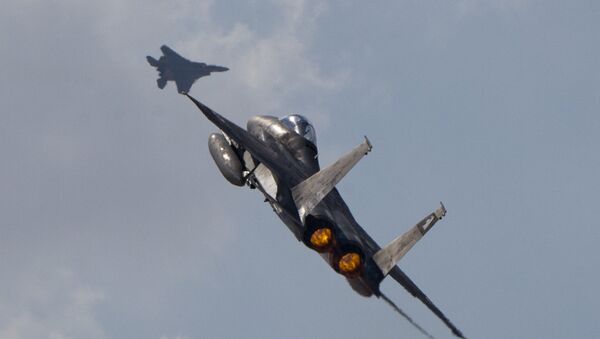The US Secretary of State Mike Pompeo said that the killing of Qassem Soleimani was part of a bigger US strategy to deter American enemies, diluting earlier claims that the Iranian commander of the Quds Force was targeted because he was plotting attacks against US assets.
But Raz Zimmt, a research fellow at Israel's Institute for National Security Studies, who specialises in Iran, says Washington might have succeeded in eliminating the direct threat of Soleimani but the concept and the ideology he represented remains intact.
"Iran is not a terror organisation, it is a state with an extremely organised decision making core. It is that core that decides the strategy, while people like Soleimani execute these policies".
New Boss in Town
Now that Soleimani is gone, this will be the job of his successor, 62-year-old Esmail Ghaani.
Not much is known about the man, who has vowed to continue Soleimani's policies and who will now be in charge of the Quds Force, an elite unit within Iran's Islamic Revolutionary Guard Corps, responsible for Iran's military operations outside of its borders.
He joined the IRGC shortly after it was established in 1979 and was first deployed to put down the Kurdish uprising that followed after the ouster of the Iranian Shah.
Then came the Iraq-Iran war (1980-1988) that saw more than a million people killed. Ghaani survived that war to join the Quds Force in the late 1980s.
In the Quds Force he moved quickly up the ranks and became Soleimani's deputy in 1997, a position he filled for nearly two decades. As such, he was focusing on nations to Iran's east (like Afghanistan and Pakistan), while Soleimani was concentrating on ties with states that lie to the Islamic Republic's west, including Syria and Lebanon.
The Enigma of Ghaani
"It is natural that we don't know much about the man, simply because he lived in the shadow of the powerful Soleimani," explained Zimmt. "But that doesn't take away from his capabilities," he added, drawing a parallel between Ghaani and the late leader of Egypt Anwar al Saddat, who although he paled in comparison with his predecessor Gamal Abdel Nasser, did manage to achieve something Nasser didn't - a peace treaty with Israel in 1979 that resulted in Egypt reclaiming the Sinai peninsula.
Now, Zimmt says, Ghaani will need to prove himself. But that will largely depend on his political skills.
"The new chief will need some time to establish ties with the Iranian proxies," said Zimmt referring to such allies as President Bashar al Assad of Syria, Hezbollah in Lebanon and the Houthi rebels in Yemen.
"While there is no doubt Ghaani knows the job and possesses the military and operational skills, it is his political capabilities that will determine whether he will succeed".
Should Israel Panic?
Meanwhile, believes the expert, Israel should not worry as Iran has no plans to drag itself into another conflict, especially now that it still needs to figure out how to avenge the death of the former Quds Force commander.
"Israel is not an easy prey and Iran will not want to open another front. Hezbollah might only be deployed in the event of an Israeli attack on the Islamic Republic's nuclear facilities. Having said that, I cannot rule out the possibility of Tehran attacking other US allies in the region".
Although Ghaani himself, who spoke shortly after the elimination of Qasem Soleimani, promised "bodies of American soldiers across the Middle East," the Iranian strike that followed shortly after that targeted two US bases in Iraq was the Islamic Republic's "cautious response," believes Zimmt.
"Iran is now facing a dilemma. It wants to avenge the death of Soleimani but it doesn't want to be dragged into a full-scale war with Washington. That's why they might prefer to do nothing at this stage, while their bigger strategy would be to eventually drive Americans out of the region".



